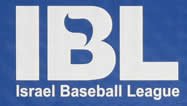Rafael Bergstrom pitching for the Bridgeport Bluefish
Blue Sox pitchers Rafael Bergstrom and Jason Benson were both signed by teams in the Atlantic League after the IBL season ended. Between the two of them they have started four games so far and have done well in each one. Not only is it great to see old league mates do well but it is also validation of the high caliber of baseball that was played in the IBL.
The Atlantic League is a premiere Independent League. Ex major league All Stars Rubin Sierra and Jose Offerman both played in the Atlantic League and they equate the level of play there to be between AA and AAA.
I am a bit ashamed to say I did not think they would do all that well. I can’t say I am shocked but I have been pleasantly surprised. I have followed the games live on radio and studied the stats on the Web, it has been fun.
So here is some basic analysis. The sample size of Rafi and Jason's Atlantic League and even the IBL stats are too small to give serious credence to any deductions derived from the analysis. But it is fun (at least for me) to run some numbers and try to put Rafi and Jason’s work in a broader context.
Rafi plays for the Bridgeport Bluefish and Jason plays for the Lancaster Barnstormers

The Atlantic League is a premiere Independent League. Ex major league All Stars Rubin Sierra and Jose Offerman both played in the Atlantic League and they equate the level of play there to be between AA and AAA.
I am a bit ashamed to say I did not think they would do all that well. I can’t say I am shocked but I have been pleasantly surprised. I have followed the games live on radio and studied the stats on the Web, it has been fun.
So here is some basic analysis. The sample size of Rafi and Jason's Atlantic League and even the IBL stats are too small to give serious credence to any deductions derived from the analysis. But it is fun (at least for me) to run some numbers and try to put Rafi and Jason’s work in a broader context.
Rafi plays for the Bridgeport Bluefish and Jason plays for the Lancaster Barnstormers

Jason pitched beautifully in his first start a couple of nights ago. He did not give up a hit until the fifth inning. The only flaw in his performance was his five walks in five and a third innings. Jason does not throw hard (mid 80’s) but has excellent command of multiple pitches and rarely walks batters, so the five walks is atypical for him.
Interesting to note is that neither Rafi nor Jason was the ace of the Blue Sox staff. Juan Feliciano, winner of the best IBL pitcher award, was their ace. Rafi was the number two pitcher and Jason number three. In the IBL Rafi had a 2.44 ERA and Jason had a 4.11 ERA.
Before Rafi pitched a shut out against Modiin in the championship game, I did some analysis that led me to believe that Rafi would not cruise through the game. This is what I saw…
Interesting to note is that neither Rafi nor Jason was the ace of the Blue Sox staff. Juan Feliciano, winner of the best IBL pitcher award, was their ace. Rafi was the number two pitcher and Jason number three. In the IBL Rafi had a 2.44 ERA and Jason had a 4.11 ERA.
Before Rafi pitched a shut out against Modiin in the championship game, I did some analysis that led me to believe that Rafi would not cruise through the game. This is what I saw…

He seemed to become less dominating as the season progressed.
But he proved me wrong, reversed course and pitched a gem to win the IBL championship.
But he proved me wrong, reversed course and pitched a gem to win the IBL championship.




